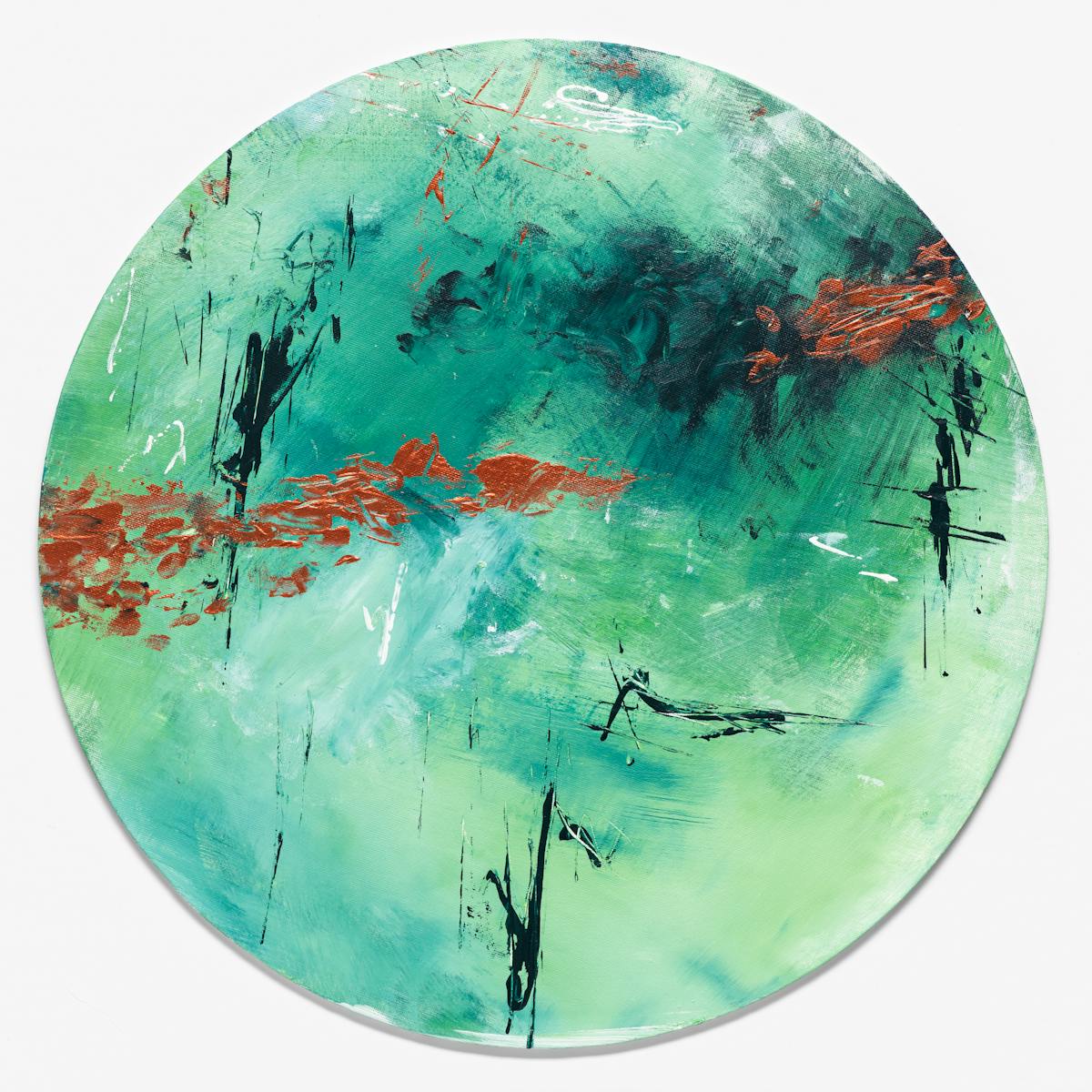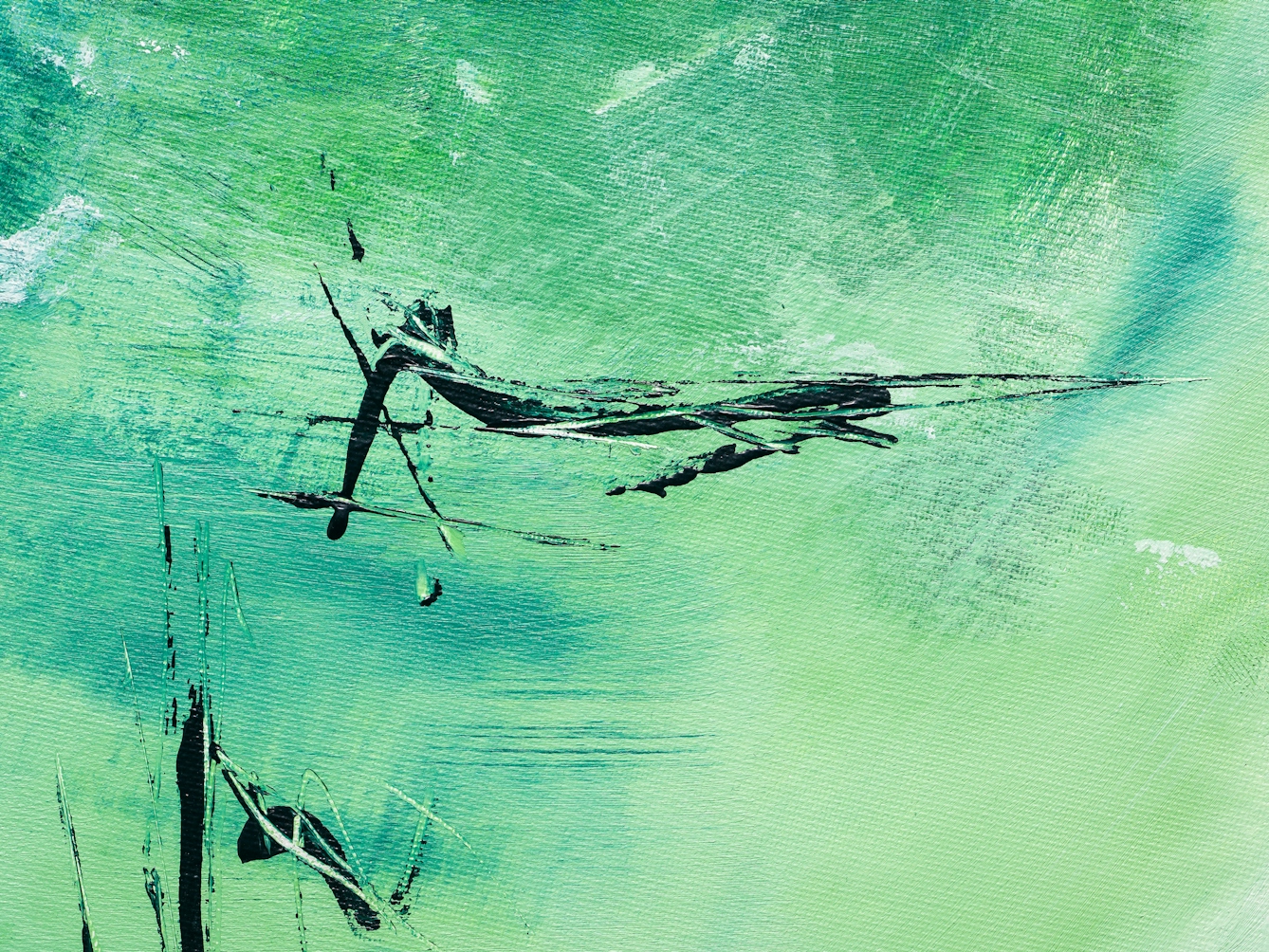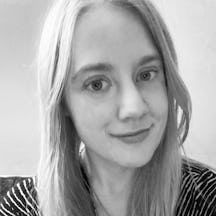As a writer, nothing beats the thrill of publication. But it can feel complicated when you’re sharing your own life story. Here, Caroline Butterwick describes being torn between creating the happy endings most editors seem to want and being honest about her complex experiences of mental ill health and disability.
Why the truth is better than a happy ending
Words by Caroline Butterwickartwork by Kimberley Burrowsaverage reading time 4 minutes
- Article

I stare at the blank laptop screen. My mind is full of ideas but I’m struggling to know where to begin. How do I write something that’s authentic but also helpful and satisfying for anyone who happens to stumble on my words?
This is a common scenario for me. As a freelance journalist, I’m used to exploiting my experiences for – let’s be crass – money. I sell something of myself for an agreed fee, again and again.
I’m visually impaired and have experienced mental ill health, and these are the subjects I tend to explore. Often I write about what I have learned from my experiences of disability – how I have navigated support in work and education, for example, or more explicitly personal things about embracing who I am.
I choose to pitch these ideas to editors. Over a few paragraphs in a speculative email, I attempt to convince a stranger that my article is worth commissioning.
Editors want neat, marketable, 1,000-word packages. They’re looking for stories they know people will click on or buy a magazine to read. I’ve learned to always think about the so-called “reader takeaway”: what’s in it for them? Will they learn something practical, like how to ask for reasonable adjustments at work, or will they be left feeling hopeful that life can be better again after being ill?
While I believe there is value in telling these kinds of stories, I’m left navigating a tension between telling the truth and producing something I can sell.

“While I believe there is value in telling these kinds of stories, I’m left navigating a tension between telling the truth and producing something I can sell.”
With this article, and every essay I have written for this series, I am aware of meeting the requirements: of staying in word count, of creating something with a click-worthy tagline for social media. Readers need to be enticed to spend five or ten minutes working their way through my words.
The value of lived experience
The literary world is competitive – does this mean we change something of ourselves to fit a saleable mould? It’s a problematic area for many of the writers I know who draw on lived experience in their work.
I’m thinking of the friend who had an alarmist headline pasted on her article about mental illness that dramatised her story – but hey, it got clicks. And another friend who thinks their experiences aren’t ‘sexy’ enough to be able to pitch and sell successfully.
And I’m thinking of me, combing through my life, wondering how to parcel up my trauma in a way that will make me money.
There is hope to be found from what I’ve been through: my life now is dramatically, wonderfully better than five years ago.
There’s nothing like the dopamine hit of a sale, the thrill of seeing my words published. But is there a price for selling myself like this? I’ve written features where, in the space of two pages, I am expected to tell a story with a happy ending. And, so, I sanitise my story.

“Hope is a wonderful, powerful thing – but there needs to be honesty, too. My story is not neat; it’s complicated.”
There is, I think, hope to be found from what I’ve been through: my life now is dramatically, wonderfully better than five years ago. And when I say that in an article, it ties it up neatly.
What it doesn’t show is that I was so anxious the other day I couldn’t sleep or leave the house, or that the tablet I take each night for my mental illness means I’m often too exhausted to stay up longer than 20:00, or that I’m regularly filled with immense sadness and self-doubt. That story doesn’t fit a neat or inspiring recovery arc.
Making space for honesty
Hope is a wonderful, powerful thing – but there needs to be honesty, too. I have come a long way from the hospital bed where I lay wanting to die. I have accepted myself and embraced my identity as a disabled person. But my story is not neat; it’s complicated.
And, actually, I think being honest helps people more. Reading about my struggles and difficulties and symptoms and medications and tears and barriers might make people feel less alone. When we see something of ourselves in another’s words, we can feel validated, like someone else is living through, or has lived through, what we’re experiencing ourselves.
The laptop screen is no longer blank. I read my latest article through, email it to my editor, ready for it to have a life of its own.
Do I give up something of myself with each page of my words that is published, with each invoice I send? How do I become a successful writer, one who sells ideas, while being truthful not just for the sake of my own integrity, but so I can genuinely help people? It's something I’m still working out.
About the contributors
Caroline Butterwick
Caroline Butterwick is a writer, researcher and freelance journalist based in North Staffordshire. She’s currently working on a nonfiction book proposal, and her freelance journalism has featured in a range of publications, including the Guardian, the i paper, Mslexia, and Psychologies. She is studying for a PhD in Creative Writing that explores the power of memoir as a counternarrative to dominant models of disability, funded by the Arts and Humanities Research Council/Midlands4Cities.
Kimberley Burrows
Kimberley is a blind abstract expressionist artist from Salford, Greater Manchester. An intuitive approach to her practice explores the complex themes of blindness, mental health, and art as therapy through performative mark-making. Kimberley is keen to understand the relationship between artist and medium, beyond the scope of vision, and the various health benefits that art can cultivate. Kimberley is a passionate advocate for accessibility and inclusion, which are both at the forefront of her social media presence. Kimberley, who will undertake a Master's degree in painting at the Royal College of Art, London later this year, has been featured in BBC Look North, Manchester Evening News, ITV News, the Daily Mail, and Marie Claire, among others.

